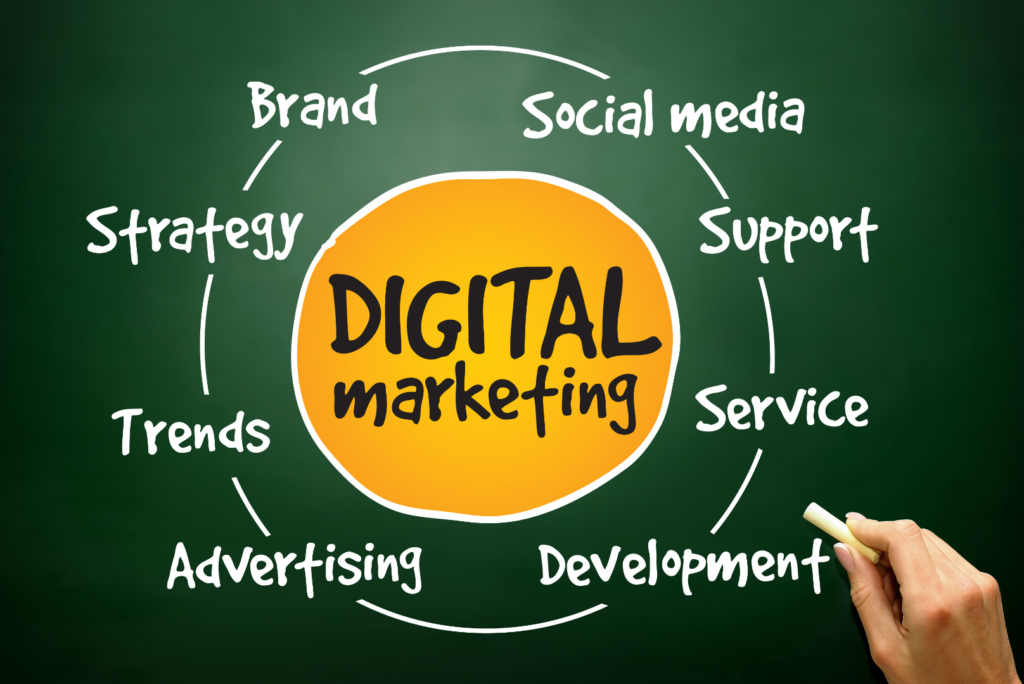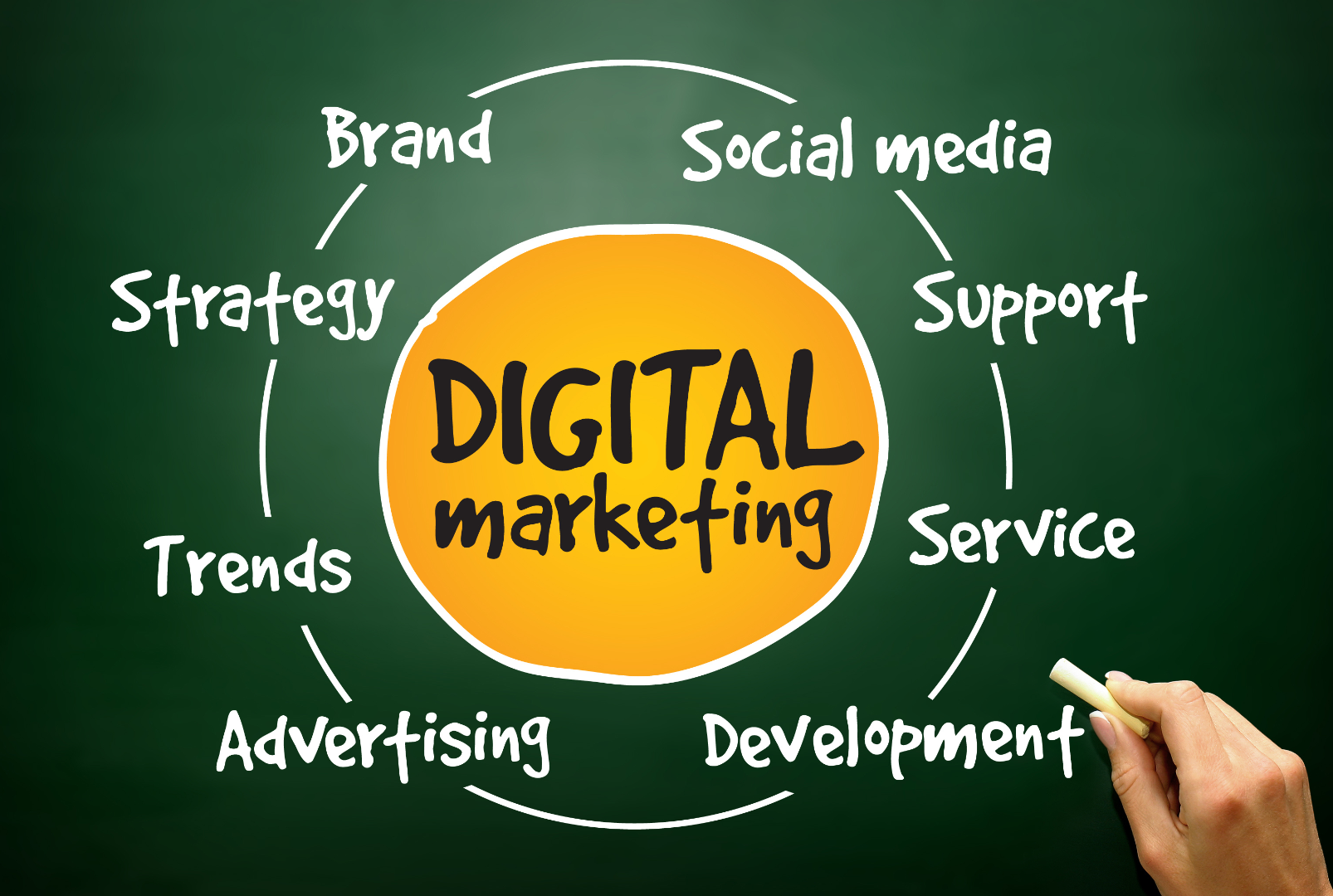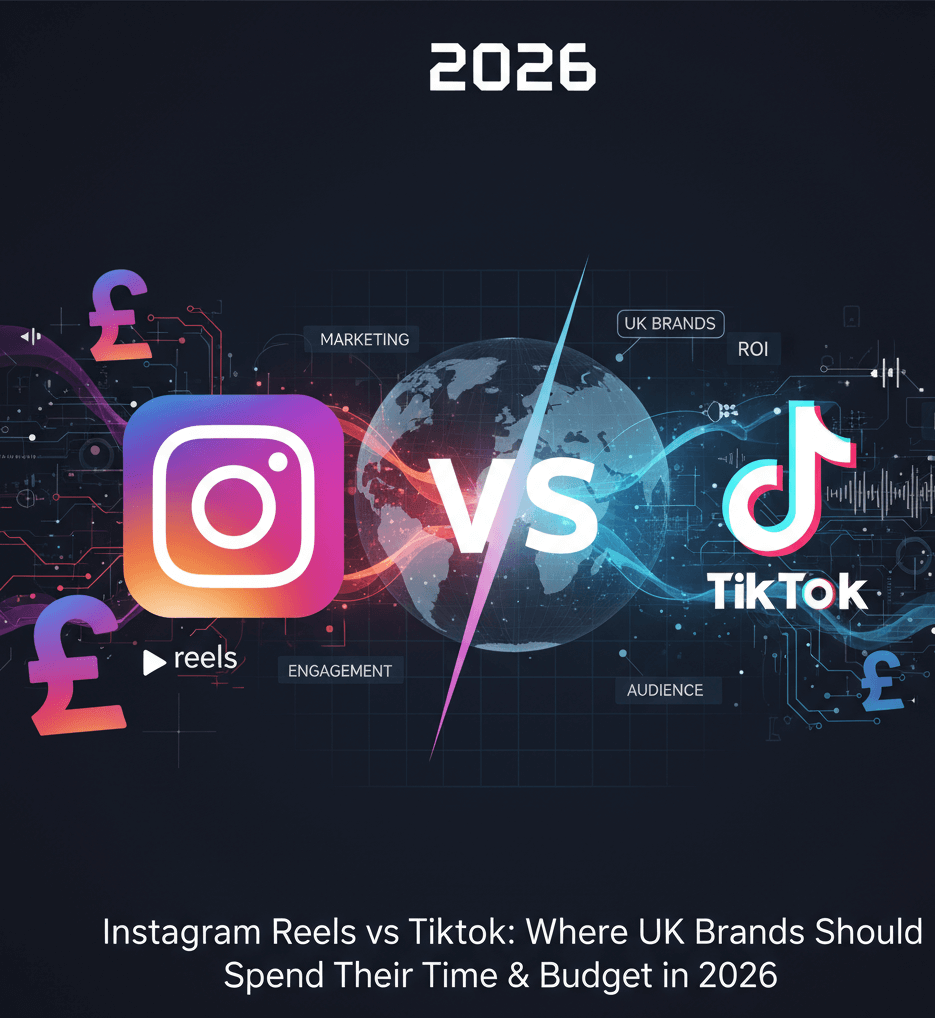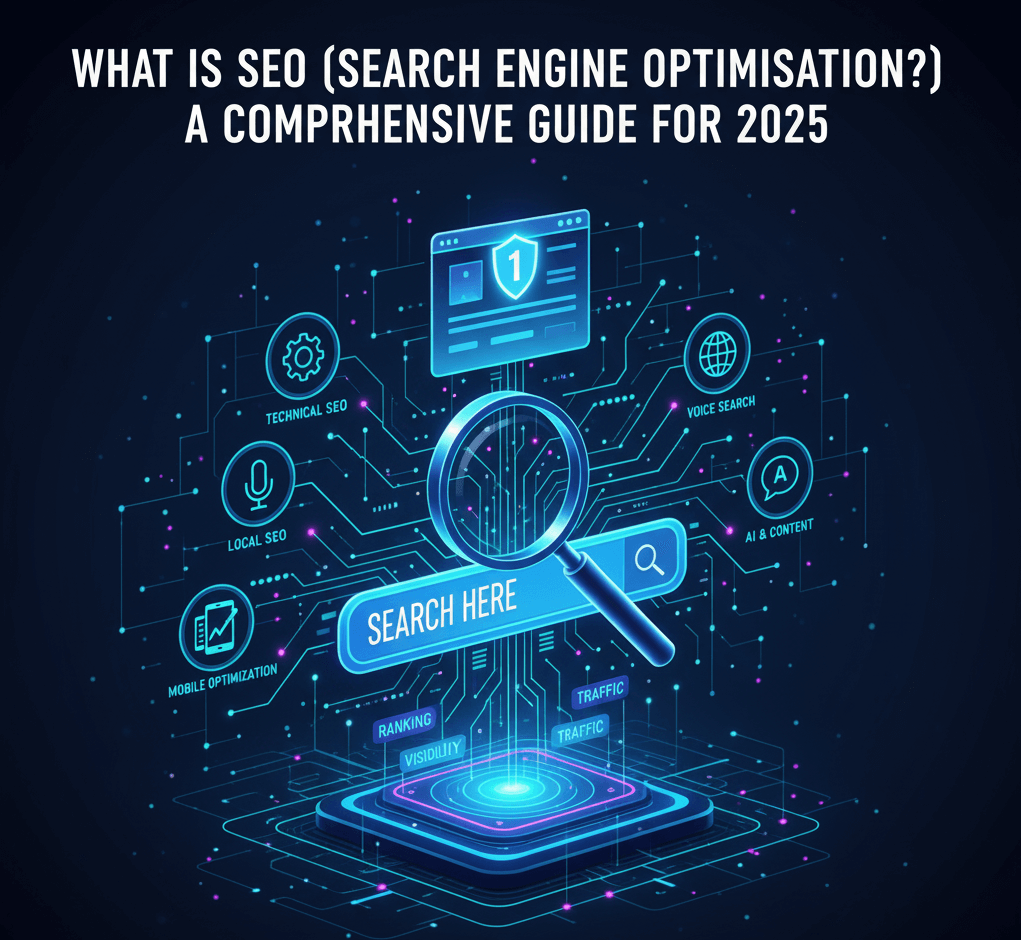Digital Marketing for UK Businesses: Strategies, Channels, and Compliance
Introduction
The Necessity of Digital Marketing
In today’s fast-paced digital world, mastering digital marketing for UK businesses is no longer just an option; it’s a necessity. As the digital landscape continues to evolve, businesses in regions such as South Yorkshire are finding that traditional marketing techniques alone are not sufficient to drive growth and remain competitive. This is where the integration of robust sales support comes into play, serving as a critical component in the enhancement of business operations and customer engagement.
Enhancing Sales Through Support
Sales support involves a variety of activities and strategies designed to assist a sales team in closing deals faster and more efficiently. Whether it’s through qualifying leads, managing customer data, or providing administrative assistance, effective sales support can drastically improve the productivity and focus of your sales personnel. By freeing up your team to concentrate on selling rather than on the complexities of process management, businesses can achieve higher sales volumes and better customer satisfaction.
The Role of Expert Staffing in Digital Marketing
Moreover, the importance of expert staffing solutions cannot be underestimated in the realm of digital marketing. Specialised staffing brings the necessary skills and insights needed to navigate the intricate digital marketing environment effectively. With the right people equipped with the right tools, companies can implement more effective marketing strategies, from SEO to social media outreach, ensuring that every campaign is optimised for success.
Preparing for Advanced Digital Marketing Strategies
By leveraging advanced digital marketing strategies tailored for UK businesses, especially in regions like South Yorkshire, companies can enhance their market presence and achieve sustainable growth. Let’s delve into how different digital marketing channels and cutting-edge techniques can transform the traditional sales approach, driving your business to new heights.
Understanding Digital Marketing Channels
Social Media Marketing
Social media platforms are a cornerstone of modern digital marketing strategies, offering diverse channels each suited to different types of content and target audiences. Here’s a breakdown of major social media platforms and their best use cases:
- Facebook: Ideal for building community engagement through posts, stories, and live videos. It works well for both B2C and B2B audiences and is excellent for running targeted ads.
- Instagram: Best for visual content such as images and videos. Highly effective for brands targeting younger demographics, focusing on aesthetics and influencer collaborations.
- Twitter: Suited for real-time communication and brand updates. Great for engaging in trending topics, customer service, and direct interactions with followers.
- LinkedIn: The go-to network for B2B marketing, focusing on professional content, industry news, and networking.
- TikTok: Dominated by Gen Z and younger millennials, it’s perfect for viral content using short-form videos, often leveraging trends and music.
- YouTube: Essential for long-form video content, tutorials, and product reviews. It offers extensive reach and the capability for detailed storytelling.
- Pinterest: Ideal for lifestyle, DIY, and tutorial-based visual content, often linked directly to product pages or blogs.
Best Practices for Engagement
Engaging effectively on social media requires more than just regular posts. Here are some best practices to enhance your social media engagement:
- Consistent Posting: Maintain a regular posting schedule to keep your brand top-of-mind for your audience.
- Interactive Content: Use polls, quizzes, and interactive stories to engage users actively.
- Personalised Responses: Respond to comments and messages promptly to build a relationship with your audience.
- Use of Hashtags: Strategically use hashtags to increase the reach of your posts to relevant audiences.
- Visuals and Videos: Leverage high-quality images and videos as they are more likely to attract attention and increase engagement.
- Live Sessions: Conduct live sessions to interact directly with your audience, providing a personal touch.
Examples of Successful Campaigns
Here are a few examples of successful social media campaigns that have significantly boosted engagement and brand presence:
- Dove’s #RealBeauty Campaign: Dove used real people instead of models in their ads to highlight beauty diversity, which resonated well across social media platforms, enhancing brand loyalty and customer engagement.
- Airbnb’s #WeAccept Campaign: This campaign featured a series of posts promoting acceptance and diversity, aligning with social values and increasing positive engagement.
- Nike’s React Campaign on Instagram: Utilising Instagram Stories, Nike showcased their new React shoes through interactive polls and vivid imagery, leading to high engagement and direct responses from their audience.
By understanding and implementing the best practices tailored to each social media platform, businesses can optimise their digital marketing strategies effectively. Engaging content, combined with strategic campaigns, can significantly enhance digital presence and drive business growth.
Email Marketing
How to Personalise Emails
Personalization in email marketing goes beyond addressing the recipient by their name. It involves tailoring the content to meet the individual interests and needs of each subscriber, which can significantly boost engagement rates and customer loyalty. Here are a few strategies for personalising emails:
- Segment Your List: Divide your email list into segments based on demographics, purchasing behaviour, or engagement levels. This allows for more targeted and relevant messaging.
- Behavioural Triggers: Send emails based on specific actions taken by the user, such as browsing a particular product, abandoning a shopping cart, or a recent purchase.
- Dynamic Content: Incorporate dynamic content that changes based on the user’s past interactions with your brand, such as suggested products similar to past purchases.
- Personalised Recommendations: Utilise data from previous interactions to offer personalised recommendations that cater to the individual preferences of each recipient.
Tools for Effective Email Marketing
To execute personalised email campaigns effectively, you’ll need robust tools that can handle automation, integration with other platforms, and provide insightful analytics. Here are a few recommended tools:
- Mailchimp: Known for its user-friendly interface and integration capabilities, it offers automation, personalised email creation, and detailed performance tracking.
- HubSpot: Provides comprehensive CRM functionalities along with email marketing, allowing for deep personalization and tracking customer journeys.
- ActiveCampaign: Excels in automation, offering advanced segmentation and dynamic content to create highly personalised email experiences.
SEO and SEM
Differences and Benefits
Search Engine Optimization (SEO) and Search Engine Marketing (SEM) are both crucial to a successful digital marketing strategy, but they serve different purposes:
- SEO focuses on improving organic search rankings and visibility through optimising website content, structure, and off-page factors like backlinks. The benefits include long-term growth in traffic, brand credibility, and cost-effectiveness.
- SEM involves paid advertising strategies, primarily through platforms like Google Ads. It allows for immediate visibility in search results and precise targeting options, making it ideal for driving quick returns and testing new markets.
Tips for Improving SEO Rankings
Improving your SEO rankings is essential for any business, especially those targeting specific regions like South Yorkshire. Here are some tips:
- Keyword Research: Identify and target specific keywords relevant to your local audience, including long-tail keywords that capture more specific searches.
- Quality Content: Create high-quality, relevant content that addresses the needs and questions of your audience. Regular updates and blog posts can keep your site fresh and authoritative.
- Mobile Optimization: Ensure your website is mobile-friendly, as a significant portion of searches are performed on mobile devices.
- Local SEO: Optimise for local search by including location-specific keywords, registering with Google My Business, and accumulating local reviews.
- Backlinks: Build backlinks from reputable local sources to enhance your site’s authority and relevance.
By integrating both SEO and SEM strategies, businesses in South Yorkshire can enhance their online presence, attracting more traffic and effectively converting visitors into customers.
Affiliate Marketing
How It Works
Affiliate marketing is a performance-based marketing strategy where a business pays one or more affiliates for each visitor or customer brought about by the affiliate’s own marketing efforts. This model primarily relies on four key players: the merchant (also known as ‘retailer’ or ‘brand’), the network (which contains offers for the affiliate to choose from and also takes care of the payments), the affiliate (also known as ‘publisher’), and the customer.
The process is straightforward:
- Affiliates share your products: Affiliates promote your products or services on their platforms — be it a blog, social media account, or website.
- Customers make purchases: Potential customers click on these promotional links and are redirected to your website where they can make a purchase.
- Affiliates receive commission: Once the purchase is confirmed, the affiliate earns a commission from the sale, which is a predetermined percentage of the sale’s value.
How to Find and Collaborate with Affiliates
Finding and collaborating with the right affiliates is crucial to the success of an affiliate marketing program. Here are some steps and tips to effectively find and work with affiliates:
- Use Affiliate Networks: Joining affiliate networks like Awin, CJ Affiliate, or Rakuten Marketing can help connect you with thousands of affiliates who are already looking for products to promote. These platforms simplify much of the management work, including tracking, payments, and dispute resolution.
- Recruit Niche Bloggers and Influencers: Look for bloggers and influencers in your niche who align with your brand’s values and audience. They can drive targeted traffic due to their established trust and authority with their followers.
- Offer Competitive Commissions: Attractive commission rates can help you stand out to potential affiliates. Research standard rates in your industry and consider offering higher rates for top performers to encourage loyalty and more aggressive promotion.
- Create Compelling Affiliate Resources: Provide your affiliates with all the tools they need to succeed. This includes promotional materials, banners, product information, and even exclusive deals they can offer to their audience.
- Regular Communication: Keep regular contact with your affiliates to keep them engaged and motivated. Update them on product launches, changes in pricing, and other important information. Regular newsletters, webinars, and exclusive events can help maintain strong relationships.
Supporting Your Affiliates for Success
Successful affiliate marketing also involves supporting your affiliates to maximise their effectiveness:
- Training and Support: Offering regular training sessions and support can help affiliates improve their marketing skills, which in turn benefits your brand.
- Transparent Tracking and Reporting: Ensure that you have a reliable system in place to track affiliate performance and provide transparent reporting. This builds trust and helps affiliates optimise their campaigns.
By implementing a structured approach to affiliate marketing, businesses in regions like South Yorkshire can extend their reach, driving both brand awareness and sales efficiently. This performance-based marketing channel not only helps minimise upfront marketing costs but also aligns marketing efforts directly with outcomes, ensuring a high ROI for digital marketing campaigns.
Consumer Behavior and Content Creation
Analysing Consumer Behaviour
Understanding consumer behaviour is essential to crafting effective digital marketing strategies. By analysing how consumers interact with your brand and products, you can optimise your marketing efforts to better meet their needs.
Buying Cycles
The buying cycle refers to the stages consumers go through before, during, and after making a purchase. These stages typically include awareness, consideration, decision, and loyalty. Understanding each phase helps marketers create targeted strategies that engage customers at the right time with the right content.
User Engagement
User engagement measures how actively users interact with your brand across various platforms. High engagement rates often indicate that consumers find your content valuable and relevant. Tracking metrics like click-through rates, social media interactions, and time spent on site can provide insights into how well your content resonates with your audience.
Developing Personas
Creating detailed customer personas is a powerful way to understand and segment your audience. Personas should include demographic information, behaviours, motivations, and pain points. These profiles enable marketers to tailor their strategies and content to meet the specific needs and preferences of different segments, improving the effectiveness of marketing campaigns.
Effective Content Types
Crafting content that captures attention and engages your target audience is crucial. Here’s how to create content that resonates:
Creating Compelling Blog Posts
Blog posts are a staple in content marketing due to their versatility and ability to provide value through education, entertainment, or inspiration. To create compelling blog posts:
- Focus on quality and relevancy.
- Use engaging headlines and subheadings.
- Include visuals and multimedia to break up text and add interest.
- Optimise for SEO to improve visibility.
Producing Engaging Videos and Podcasts
Videos and podcasts have become increasingly popular, offering dynamic ways to connect with audiences. Tips for creating engaging videos and podcasts include:
- Keep the content informative and concise.
- Use high-quality recording equipment to ensure clear audio and visuals.
- Engage viewers with storytelling techniques.
- Include calls-to-action to guide listeners on what to do next.
Designing Informative Webinars
Webinars offer a platform to delve deeper into subjects, demonstrating expertise and building trust with your audience. When designing webinars:
- Choose topics that are of current interest or need.
- Promote your webinars through your email list and social media channels.
- Engage participants with Q&A sessions and interactive polls.
- Follow up with attendees after the event to reinforce relationships and provide additional resources.
By understanding consumer behaviour and producing content that effectively engages these consumers, businesses can build a strong digital presence that enhances customer loyalty and drives conversions. Each type of content plays a unique role in the digital marketing ecosystem, and mastering these can significantly boost the performance of marketing campaigns, particularly for digital marketing aimed at audiences in regions like South Yorkshire.
Leveraging Analytics and Technology
Utilising Analytics
In the digital age, leveraging analytics is crucial for understanding the effectiveness of marketing campaigns and making informed decisions. Here’s how businesses can use analytics to optimise their digital marketing efforts:
Traffic Analysis and Conversion Rates
Traffic analysis involves examining the sources of web traffic and the behaviour of visitors to understand what drives users to your site and what their actions are once they arrive. Key metrics include page views, bounce rate, and session duration. Conversion rates—the percentage of visitors who complete a desired action, like filling out a contact form or making a purchase—are directly influenced by how well your site meets the needs and expectations of its visitors.
Understanding ROI and KPIs
Return on Investment (ROI) measures the profitability of the investments made in marketing campaigns, helping businesses understand which strategies provide the best returns. Key Performance Indicators (KPIs) are metrics used to quantify the success of various marketing activities. Common KPIs in digital marketing include lead generation rates, customer acquisition costs, and customer lifetime value. These metrics are vital for assessing the performance of marketing efforts and determining strategic adjustments.
Technological Tools for Marketers
Modern marketing requires the use of sophisticated tools that streamline processes, enhance effectiveness, and provide in-depth analytics. Here are some essential tools for today’s digital marketers:
CRM Systems
Customer Relationship Management (CRM) systems help businesses manage and analyse customer interactions and data throughout the customer lifecycle. They aim to improve customer service relationships and assist in customer retention and sales growth. Popular CRM systems like Salesforce, HubSpot, and Microsoft Dynamics integrate various marketing, sales, and service processes, providing a unified view of the customer.
Marketing Automation Tools
Marketing automation tools allow businesses to automate repetitive tasks such as emails, social media posting, and ad campaigns. These tools are designed to nurture prospects with personalised, useful content that helps convert prospects to happy customers. Tools like Marketo, Eloqua, and Mailchimp provide capabilities that range from campaign design and management to audience segmentation and targeted messaging.
Analytics Platforms
Platforms like Google Analytics, Adobe Analytics, and Mixpanel offer detailed insights into website performance and user interactions. They track metrics such as user demographics, behaviour patterns, e-commerce activity, and more. By understanding these analytics, businesses can optimise their websites and marketing campaigns to better meet the needs of their audience.
By effectively utilising analytics and embracing technological tools, businesses can not only streamline their marketing processes but also enhance their decision-making with accurate data insights. This strategic approach is particularly crucial for competitive digital marketing landscapes like those in South Yorkshire and the wider UK, where precision and efficiency drive success.
Digital Marketing Strategies
Content Marketing
How to Develop a Content Strategy
Developing a robust content strategy is crucial for engaging and retaining customers by providing them with valuable information. Here’s how you can develop an effective content strategy:
- Set Clear Objectives: Define what you want to achieve with your content strategy, be it increasing brand awareness, boosting sales, or engaging a specific target audience.
- Understand Your Audience: Research your audience to understand their needs, preferences, and pain points. This will help you create content that truly resonates with them.
- Content Audit and Planning: Assess your current content and identify gaps. Plan your content calendar around key dates and topics that align with your audience’s interests and your business goals.
- Choose the Right Formats: Depending on your audience and objectives, decide on the most effective content types, whether blogs, videos, infographics, podcasts, or webinars.
- Create and Distribute: Produce high-quality content that is informative, engaging, and optimised for SEO. Ensure it’s distributed through the right channels where your audience is most active.
- Measure and Optimise: Use analytics to measure the success of your content. Look at engagement rates, traffic, and conversions to understand what works and refine your strategy accordingly.
Inbound vs. Outbound Marketing
Definitions and Best Practices
Inbound Marketing is focused on attracting customers through relevant and helpful content and adding value at every stage in your customer’s buying journey. With inbound marketing, potential customers find you through channels like blogs, search engines, and social media.
Outbound Marketing refers to more traditional forms of marketing where a company initiates the conversation and sends its message out to an audience. This includes tactics like cold calling, TV commercials, and direct mail.
Best Practices:
- For Inbound Marketing: Focus on creating quality content that pulls people toward your company and product naturally. Use SEO strategies to improve visibility and engage with users through social media to foster relationships.
- For Outbound Marketing: Ensure your messages are targeted and relevant. Personalise communications as much as possible and respect the recipient’s choice and privacy, especially under GDPR rules in the UK.
Pay-Per-Click (PPC)
Setting Up and Optimising PPC Campaigns
Pay-Per-Click advertising is a crucial tool for immediate traffic and testing new offers. Here’s how to set up and optimise PPC campaigns:
- Define Your Goals: Understand what you want to achieve, whether it’s increasing sign-ups, selling a product, or promoting a new service.
- Select the Right Keywords: Conduct thorough keyword research to find terms that your target audience would use when searching for your services or products.
- Craft Compelling Ad Copy: Write clear, persuasive ads that appeal to your target audience’s needs and desires.
- Optimise Landing Pages: Ensure that the landing pages linked from your ads align with the promise made in the ad and provide a clear, compelling call to action.
- Test and Refine: Regularly test different elements of your ads and landing pages, including images, headlines, and CTAs to see what works best.
- Monitor and Adjust Budgets: Use analytics to monitor performance and adjust your bids and budgets to maximise ROI.
By integrating these digital marketing strategies, businesses can enhance their online presence and effectiveness in reaching and converting customers in competitive markets like South Yorkshire and beyond.
Navigating Regulations
GDPR Compliance for Digital Marketers
What UK Businesses Need to Know
The General Data Protection Regulation (GDPR) is a critical regulation that affects how businesses collect, store, and process personal data of individuals in the EU and UK. For digital marketers, understanding and complying with GDPR is not just about legal compliance but also about building trust with customers.
Key aspects UK businesses need to know include:
- Consent: Explicit consent must be obtained before collecting personal data. This consent must be clear, informed, and specific.
- Right to Access and Erasure: Individuals have the right to access their personal data and request its deletion.
- Data Protection Officer (DPO): Businesses that process data on a large scale must appoint a DPO.
- Data Breach Notifications: Businesses must report certain types of data breaches to relevant authorities within 72 hours and, where the breach poses a high risk to individuals, inform those affected.
Implementing GDPR-Friendly Practices
To ensure GDPR compliance, digital marketers should:
- Audit Your Data: Understand where and how personal data is collected, stored, and used in your organisation.
- Update Privacy Policies: Ensure your privacy policies are transparent, accessible, and include all the required information about data processing activities.
- Secure Data: Implement appropriate security measures to protect personal data against unauthorised access or data breaches.
- Train Your Team: Regular training on GDPR compliance is essential for all team members involved in handling personal data.
Understanding CCPA and Other Privacy Standards
How They Affect UK Businesses Targeting the US Market
The California Consumer Privacy Act (CCPA) and other international privacy standards also affect UK businesses, especially those targeting or operating within the US market. Similar to GDPR, CCPA provides consumers with more control over the personal information that businesses collect about them.
Key considerations include:
- Consumer Rights: Under CCPA, California residents have the right to know about the personal data collected on them, request deletion, and opt-out of the sale of their personal data.
- Data Inventory and Mapping: UK businesses must maintain a data inventory to track California resident data from collection through processing.
- Privacy Notices and Disclosures: Update privacy policies to include CCPA-specific requirements, such as describing the rights of California residents.
By understanding and adhering to these regulations, UK businesses can not only avoid significant fines and legal issues but also enhance their reputation as trustworthy entities that respect consumer privacy.
Conclusion
Throughout this comprehensive guide, we have explored a variety of critical aspects of digital marketing for UK businesses, focusing on the unique challenges and opportunities presented by the evolving digital landscape in regions like South Yorkshire. From the fundamentals of utilising various digital marketing channels, such as social media, email, and SEO/SEM, to the intricacies of affiliate marketing and content creation, we’ve provided actionable insights and strategies to help elevate your business’s online presence.
We also delved into the importance of leveraging analytics and technological tools to refine your marketing strategies and enhance decision-making processes. Understanding consumer behaviour, tailoring content to meet customer needs, and effectively managing online campaigns are crucial for driving engagement and conversions.
Navigating the complex regulations like GDPR and CCPA is also essential for not only ensuring compliance but also building trust with your audience by respecting and protecting their privacy.
Implementing the strategies discussed can significantly improve your business’s digital marketing efforts, leading to increased visibility, engagement, and, ultimately, sales. However, understanding and applying these strategies can be challenging, especially with the constant changes in digital marketing practices and consumer expectations.
How We Can Help
If refining your digital marketing strategy feels overwhelming or you’re unsure where to begin, don’t worry! The team at BeMoreSocial.uk is here to help. Our expert marketers specialise in crafting bespoke digital marketing strategies that drive results. Whether you’re looking to boost your SEO, enhance your social media presence, or navigate complex privacy regulations, we’ve got you covered. Get in touch with us today to learn how we can elevate your digital marketing efforts and help your business thrive.















